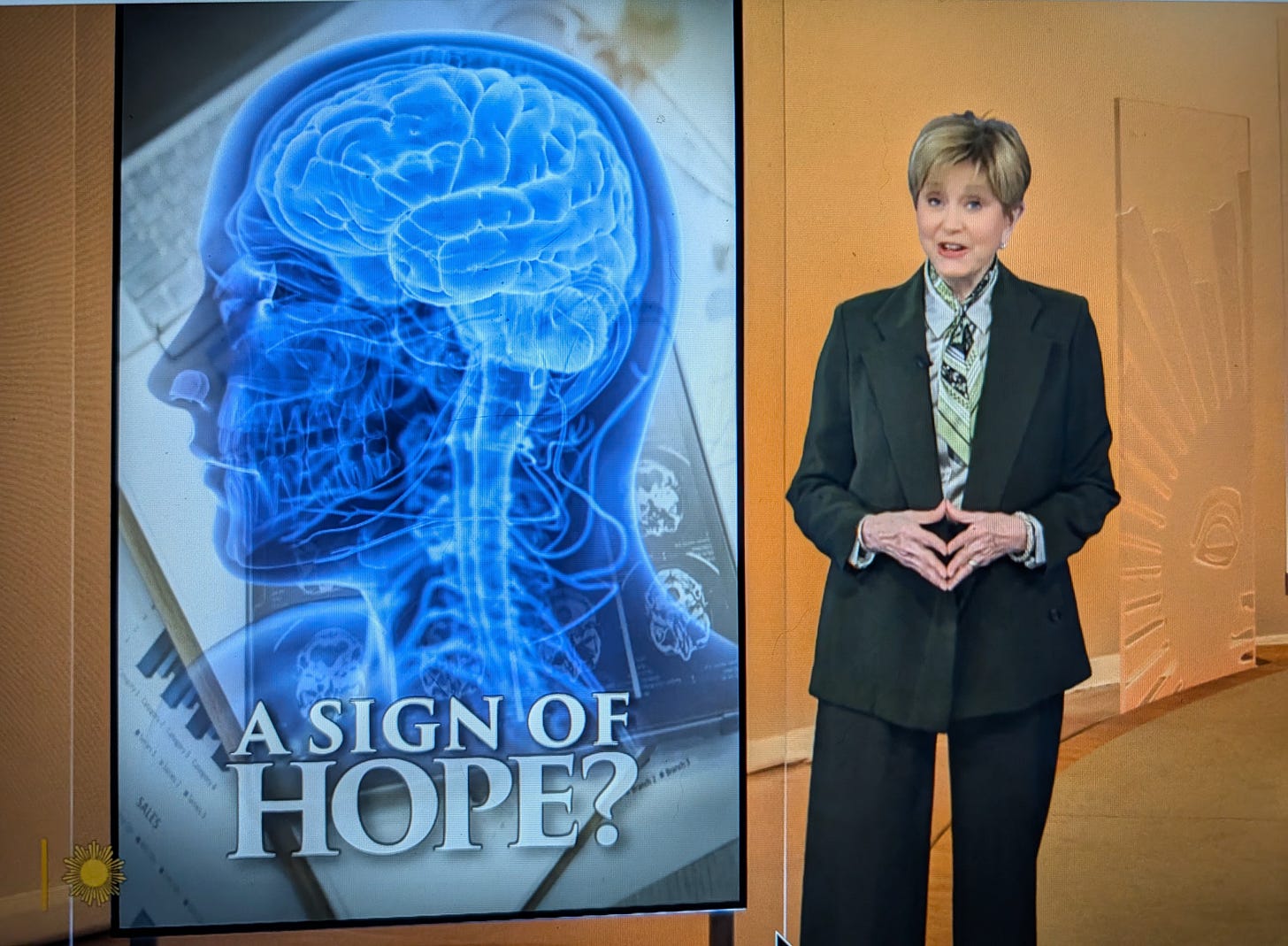My Alzheimer's Journey
Part 35 - Research Report on CBS Sunday Morning November 9, 2025
This morning, CBS Sunday Morning reported on exciting Alzheimer’s research underway at Washington University. Led by Dr, Randall Bateman, the research is developing a simple blood test for Alzheimer’s disease (AD).
Dr. Bateman has dedicated his career to studying AD. He led several clinical trials for Lecanemab, and he continues to study the efficacy of the drug. The thought of a diagnostic blood test for AD is really exciting. Studies demonstrate that Lecanmad and Donanemab are most effective at slowing the progression of AD if treatment is started at the early stages of AD. It is believed that changes to the brain begin long before AD symptoms appear. It would be life changing for millions of people if Lecanmad or Donanemab treatments could begin ten or even twenty years prior to AD symptoms appearing.
As with all major scientific studies, the cost of Dr. Bateman’s studies is astronomical. CBS Sunday Morning interviewed Bill Gates to discuss his involvement in this research. An extended version of the interview is available on YouTube. In the interview, Bill Gates talks about his investment in AD research ($300 million to date) and why it is important that the Federal government continue funding AD research. Not surprisingly, the Trump administration has already paused some AD research funding and more cuts are possible. Bill Gates points out that investing in AD research today will likely save a tremendous amount of treatment costs in the future.
Trump’s father suffered with AD and other forms of dementia. There are numerous rumors floating around that the President himself has some sort of cognitive deficiency. This begs the obvious question, “why is Trump not increasing AD research rather than cutting it?” Or, why isn’t he personally funding AD research?
As a global society, disease prevention research is extremely important. I certainly hope that wealthy individuals and companies will join Bill Gates in funding disease early diagnostic research and treatment. Early diagnosis of cancer, dementia, and other fatal diseases generally increases the chances for successful treatment by focusing on detecting symptomatic patients as early as possible.
Prevention is more cost-effective than treating diseases once they develop.


